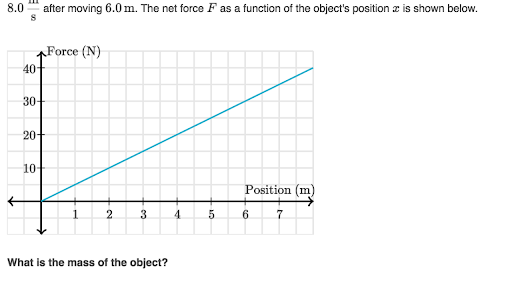Practice Velocity
Average speed
This problem is deceptively easy. Averaging is taught in elementary school, which makes this an elementary problem. Right?
Practice Velocity and DocuTAP are now one company with a single focus - to revolutionize healthcare with a suite of Urgent Care software solutions. Experity (formerly Practice Velocity & DocuTap) is a cloud-based electronic medical records (EMR), practice management, and medical billing software solution built for on-demand care providers of all sizes and specialties including occupational medicine, pediatrics, and primary care.
| 6.0 km/h + 5.0 km/h | = 5.5 km/h |
| 2 | |
| The wrong method of averaging | |

The add-and-divide method of averaging only works when averaging items of equal weight. The average age of the students in a classroom is the sum of their ages divided by the number of students only because each student is considered to have the same significance (a student, is a student, is a student, … ). In this problem, however, the two segments of the walk are significantly different. The second 'half' was actually the majority of the walk. It carries more weight than the shorter first 'half'. Thus, the add-and-divide method won't work.
Let's return to our definition. Since speed is the rate of change of distance with time, we'll need both the distance traveled and the time it took to complete the walk. After we determine both of these numbers, the rest is easy.
| ∆t = |
| ||
| ∆t1 = | 6.0 km | = 1.0 h | |
| 6.0 km/h | |||
| ∆t2 = | 10 km | = 2.0 h | |
| 5.0 km/h |
| v = |
| ||
| v = | 6.0 km + 10 km | ||
| 1.0 h + 2.0 h | |||
| v = 5.3 km/h | |||
Look closely at the calculations on the right side. Notice that the formula contains ∆ (delta) symbols and yet I added the distances in the numerator and the times in the denominator. That's because ∆ doesn't mean difference, it means change. During the walk my position didn't change from 6.0 km to 10 km, it changed first by 6.0 km and then by 10 km for a total change of 16 km.


1velocity-analysis method
- метод анализа скоростей (сейсм.)
метод анализа скоростей (сейсм.)
—
[ http://slovarionline.ru/anglo_russkiy_slovar_neftegazovoy_promyishlennosti/]Тематики
EN
Англо-русский словарь нормативно-технической терминологии >velocity-analysis method
2velocity-analysis method
Большой англо-русский и русско-английский словарь >velocity-analysis method
3velocity analysis method
• способ разновременного криволинейного анализаEnglish-Russian dictionary of geology >velocity analysis method
4velocity-analysis method
* * *Англо-русский словарь нефтегазовой промышленности >velocity-analysis method
5velocity analysis method
Геофизика:способ анализа скоростей, способ разновременного криволинейного анализаУниверсальный англо-русский словарь >velocity analysis method
6velocity-analysis method
Универсальный англо-русский словарь >velocity-analysis method
7velocity-analysis method
English-Russian seismology dictionary >velocity-analysis method
См. также в других словарях:
analysis — /euh nal euh sis/, n., pl. analyses / seez /. 1. the separating of any material or abstract entity into its constituent elements (opposed to synthesis). 2. this process as a method of studying the nature of something or of determining its… … Universalium
Bloodstain pattern analysis — (BPA) is one of several specialties in the field of forensic science. The use of bloodstains as evidence is not new; however, the application of modern science has brought it to a higher level. New technologies, especially advances in DNA… … Wikipedia
Dimensional analysis — In physics and all science, dimensional analysis is a tool to find or check relations among physical quantities by using their dimensions. The dimension of a physical quantity is the combination of the basic physical dimensions (usually mass,… … Wikipedia
Discrete element method — A discrete element method (DEM), also called a distinct element method is any of family of numerical methods for computing the motion of a large number of particles of micrometre scale size and above. Though DEM is very closely related to… … Wikipedia
Numerical analysis — Babylonian clay tablet BC 7289 (c. 1800–1600 BC) with annotations. The approximation of the square root of 2 is four sexagesimal figures, which is about six decimal figures. 1 + 24/60 + 51/602 + 10/603 = 1.41421296...[1] Numerical analysis is the … Wikipedia
Multiphase particle-in-cell method — The multiphase particle in cell method (MP PIC) is a numerical method for modeling particle fluid and particle particle interactions in a computational fluid dynamics (CFD) calculation. The MP PIC method achieves greater stability than its… … Wikipedia
numerical analysis — the branch of mathematics dealing with methods for obtaining approximate numerical solutions of mathematical problems. [1925 30] * * * Branch of applied mathematics that studies methods for solving complicated equations using arithmetic… … Universalium
Crank–Nicolson method — In numerical analysis, the Crank–Nicolson method is a finite difference method used for numerically solving the heat equation and similar partial differential equations.[1] It is a second order method in time, implicit in time, and is numerically … Wikipedia
Linear multistep method — Adams method redirects here. For the electoral apportionment method, see Method of smallest divisors. Linear multistep methods are used for the numerical solution of ordinary differential equations. Conceptually, a numerical method starts from an … Wikipedia
Semen analysis — Diagnostics Human sperm stained for semen quality testing in the clinical laboratory. HCPCS L2 G0027 … Wikipedia
Modal analysis using FEM — The goal of modal analysis in structural mechanics is to determine the natural mode shapes and frequencies of an object or structure during free vibration. It is common to use the finite element method (FEM) to perform this analysis because, like … Wikipedia
Книги
Practice Velocity Machesney Park Il


- Big Data and Differential Privacy. Analysis Strategies for Railway Track Engineering, Nii Attoh-Okine O.. A comprehensive introduction to the theory and practice of contemporary data science analysis for railway track engineering Featuring a practical introduction to state-of-the-art data… ПодробнееКупить за 10424.97 рубэлектронная книга